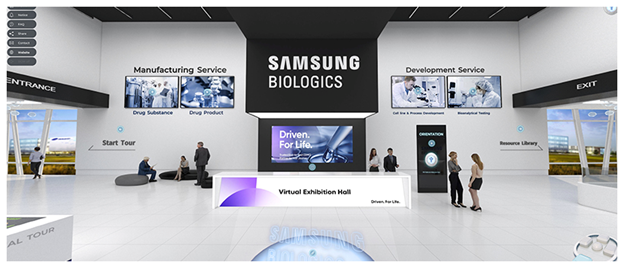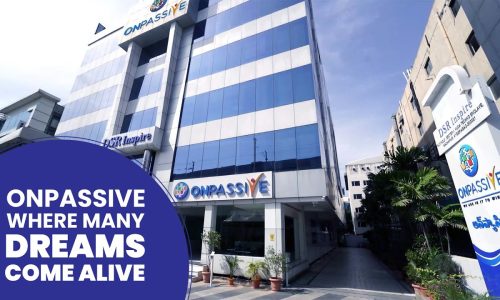
The biopharmaceutical industry could be entering the beginning of its next stage of evolution, thanks in large part to recent advancements in mRNA vaccine production. For the broader public, mRNA vaccines are best known for their use in protecting against COVID-19, but scientists and industry insiders have long understood that mRNA vaccines have a much broader potential.
MRNA vaccines instruct the body to create or alter proteins in order to fight diseases caused by antigens or genetic mutations. This means they can potentially treat conditions ranging from HIV to cancer. Samsung Biologics, a contract development and manufacturing organization that partners with clients to produce biologic drugs, is preparing for this potential mRNA revolution. While the technology is still in its early stages, the success of COVID-19 vaccines has demonstrated the viability of mRNA vaccine production at a large scale.
As the science evolves and new applications are approved, Samsung Biologics is taking steps to operate on the leading edge of manufacturing mRNA vaccines. The CDMO built an end-to-end mRNA vaccine production facility in 2022 and plans on continuing to invest in mRNA technology.
“Not many CDMOs offer the high-volume capacity to manufacture mRNA products. Samsung Biologics has invested in this capacity because we know mRNA is an expanding field in both prominence and opportunity,” wrote Samsung Biologics’ Pierre Catignol, executive vice president and head of manufacturing, and Huisub Lim, lead scientist of mRNA manufacturing, in a recent white paper.
“Among a CDMO’s most important responsibilities are constant vigilance and preparedness, the ability to read the needs of the market, and to be ready to fulfill public and industry demands when required.”
MRNA Vaccine Production vs. Traditional Vaccine Production
MRNA vaccines use genetic material to instruct the body’s cells to produce a protein that triggers an immune response. Traditional vaccines use a weakened or inactivated virus or bacteria, a small piece of the virus, or a small piece of bacteria to stimulate an immune response. MRNA vaccines are produced using a synthetic process that does not require the use of living cells or organisms, making their production faster and more efficient than traditional vaccines.
Growing large quantities of a virus or bacteria in cell cultures can be a slow and expensive process. The virus or bacteria must be grown and tested, with each iteration requiring scientists to restart the process. Once an effective vaccine is identified, the virus must be grown again for each manufacturing run, slowing the rate at which production can be scaled.
On the other hand, mRNA vaccine production is a synthetic process. It doesn’t require the use of living cells or organisms. MRNA sequences can be quickly edited and tested using digital technology and even artificial intelligence, drastically increasing the speed at which iterations can be made, and at which adaptations to mutations can be accommodated.
Once the solution is identified, the genetic sequence required can be easily communicated across labs, and because the mRNA vaccine production process does not require waiting to grow living cells, scaling is much faster.
In addition to production advantages, mRNA technology has the potential to target diseases in a way that traditional biologics have not achieved, said Catignol and Lim.
“MRNA can create therapeutics based on a novel mechanism
of action (MoA) for applications that cannot be targeted by existing antibody platforms (e.g., gene editing, targeting of intracellular protein or pathogens, etc.),” they explain. “MRNA technology also is conducive to highly specific molecular designs and functionalities, giving it the potential to achieve greater efficacy than traditional drugs by addressing the underlying causes of disease.”
Samsung Biologics’ Strategy
Samsung Biologics is actively building an mRNA vaccine production infrastructure so it can partner with drug developers working in this fast-evolving space.
After partnering with Moderna to provide fill/finish services for its COVID-19 vaccine, Samsung Biologics decided to add mRNA drug substance capabilities at its facilities in Songdo, South Korea. The CDMO can now produce mRNA molecules by transcribing plasmid DNA, encapsulating the mRNA in lipid nanoparticles to prevent degradation, and aseptically transferring the active drug substance to vials in precise clean room condition. It also provides cold storage capabilities, with temperatures as low as minus 70 degrees Celsius as needed.
Samsung Biologics conducts the entire process at the same facility, mitigating the risk of degradation through excessive handling and transit. The process is adaptable to a variety of mRNA projects, and scalable to different batch sizes. This is due to mRNA’s easy editability and the in vitro (cell-free) nature of mRNA vaccine production.
“In terms of actual manufacture, platform approaches are applicable to mRNA technology. Genetic sequence changes, base manufacturing, purification, and LNP formation generally utilize the same processes. Thus, processing for many product types requires only simple switching of the gene of interest within the same platform process,” said Catignol and Lim. “Conversely, using a monoclonal antibody (mAb) platform, even a small change can require numerous process changes.”
As mRNA technology continues to evolve for new applications, Samsung Biologics is preparing its mRNA vaccine production capabilities to manufacture a new generation of life-saving biologic medicines.




